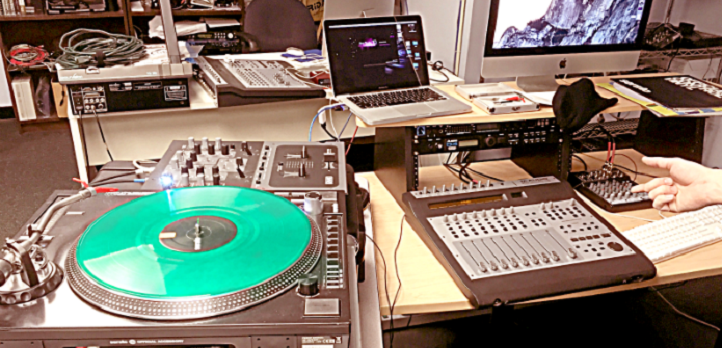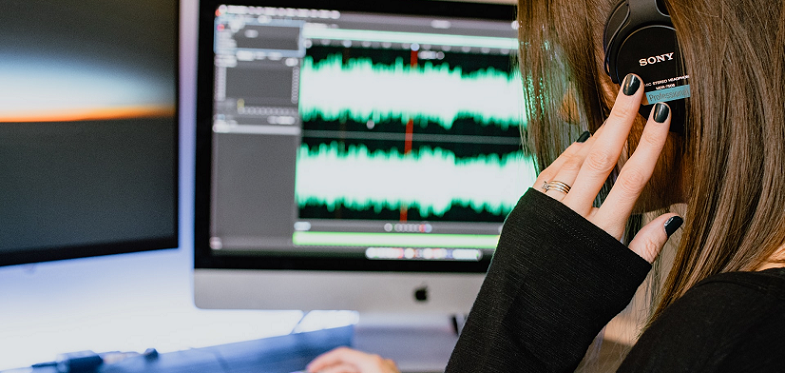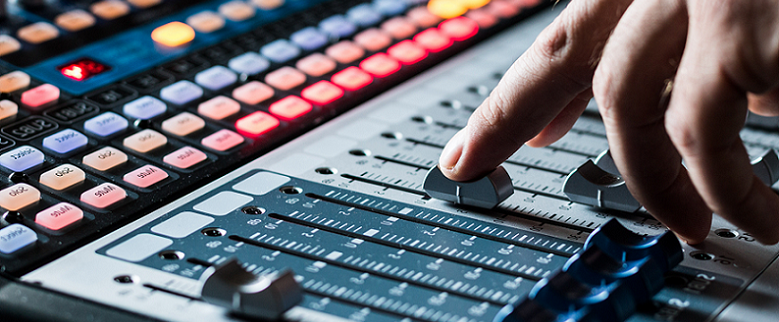The music industry has undergone a significant transformation in recent years, largely due to the impact of technology. The rise of digital platforms and the decline of traditional physical sales have disrupted traditional business models, leading to new opportunities for music creation and distribution. This shift has also changed the way music is consumed, with streaming services becoming increasingly popular. As technology continues to evolve, it’s important to understand the impact it has on the music industry and what the future of music consumption might look like.
A Very Brief History of the Music Industry
The music industry has a rich history that dates back to the early 20th century, when the phonograph and radio were invented. These innovations paved the way for the commercial distribution of recorded music and the growth of the music industry. In the following decades, new technologies such as the compact disc and the internet brought further changes to the industry.
The advent of digital music in the late 20th and early 21st centuries, along with the growth of streaming services, has had a profound impact on the industry, disrupting traditional business models and leading to new opportunities for music creation and distribution. Despite these changes, the music industry remains a major cultural and economic force, with music continuing to play an important role in our lives.
Overview of the Impact of Technology on the Music Industry
The impact of technology on the music industry has been profound and far-reaching. One of the biggest changes has been the shift from physical sales to digital sales, with the rise of online music stores and streaming services. This has disrupted traditional business models, leading to new ways of creating and distributing music, and changing the way music is consumed.

The increased use of digital platforms has also made it easier for independent artists to reach audiences, bypassing the need for traditional record labels. Additionally, new technologies such as AI and VR/AR have the potential to revolutionize the music industry, opening up new avenues for music production and consumption.
Despite these changes, the industry continues to face challenges, such as declining revenue from recorded music and the difficulty in fairly compensating artists for their work in the digital age. Nevertheless, the impact of technology on the music industry has been significant, and will continue to shape the industry for years to come.
Technology’s Disruption of Traditional Business Models
The technology’s disruption of traditional business models has had a profound impact on the music industry. One of the biggest changes has been the decline of physical sales and the rise of digital sales, with music now being predominantly consumed through streaming services. This has led to a shift in the way revenue is generated and distributed, with streaming services and digital downloads becoming the primary sources of income for the industry.
This has also changed the role of record labels, with many independent artists now able to reach audiences directly through online platforms. The increased use of technology has also led to new ways of creating and distributing music, such as music crowdsourcing and crowdfunding, which have given artists more control over their careers. However, these changes have also created new challenges, such as declining revenue from recorded music and the difficulty in fairly compensating artists for their work in the digital age.

The traditional business model of the music industry was centered around the sale of physical albums, with record labels serving as gatekeepers who controlled the production, distribution, and promotion of music. However, with the advent of digital technology, this model has been disrupted, leading to a decline in physical sales and the rise of digital sales, primarily through streaming services. This shift has changed the way revenue is generated and distributed, with streaming services and digital downloads now providing the majority of income for the industry.
The rise of digital platforms has also made it easier for independent artists to reach audiences, bypassing the need for traditional record labels. This has empowered artists to take control of their careers, leading to new opportunities for music creation and distribution through channels such as music crowdsourcing and crowdfunding.
However, the technology’s disruption of traditional business models has also created new challenges for the music industry, such as declining revenue from recorded music and the difficulty in fairly compensating artists for their work in the digital age. The music industry has had to adapt to these changes, and is still in the process of finding new ways to generate revenue and fairly compensate artists in the digital age.
Technology Provides New Opportunities for Music Creation and Distribution
The impact of technology on the music industry has created new opportunities for music creation and distribution. One of the most significant opportunities has been the ability for independent artists to reach audiences directly through digital platforms, bypassing the need for traditional record labels. This has empowered artists to take control of their careers, leading to new ways of creating and distributing music, such as music crowdsourcing and crowdfunding.
The rise of digital platforms has also made it easier for artists to collaborate and share their work with others, leading to new forms of music creation and distribution. For example, virtual concerts and online performances have become increasingly popular, providing new avenues for artists to connect with audiences and showcase their work.
Additionally, the use of AI in music production and consumption has the potential to revolutionize the industry, opening up new opportunities for music creation and distribution. For example, AI-powered tools can be used to generate music automatically or assist in the creation process, making music production more accessible and efficient. The use of VR/AR technology in the music industry also has the potential to enhance the music experience, providing new opportunities for artists and audiences to interact in immersive and innovative ways.

Technology and the Future of Music Consumption
Technology is playing a significant role in shaping the future of music consumption. The widespread use of streaming services is expected to continue to grow, with more and more people turning to these platforms to access music. This shift towards streaming is likely to have a profound impact on the music industry, changing the way revenue is generated and distributed.
AI is also expected to play a bigger role in the future of music consumption, with the use of AI-powered tools and technologies expected to increase. For example, AI-powered music recommendations and personalized playlists are becoming more sophisticated, providing a more personalized music experience for consumers. Additionally, the use of AI in music production has the potential to revolutionize the industry, leading to new forms of music creation and distribution.
VR/AR technology is also expected to have a big impact on the future of music consumption, providing new opportunities for artists and audiences to interact in immersive and innovative ways. For example, virtual concerts and online performances are becoming increasingly popular, providing new avenues for artists to connect with audiences and showcase their work.
The future of music consumption is expected to be shaped by technology, with the use of streaming services, AI, and VR/AR technology expected to play a significant role. These technological advancements will provide new opportunities for artists and consumers, changing the way music is created and consumed in the years to come.

